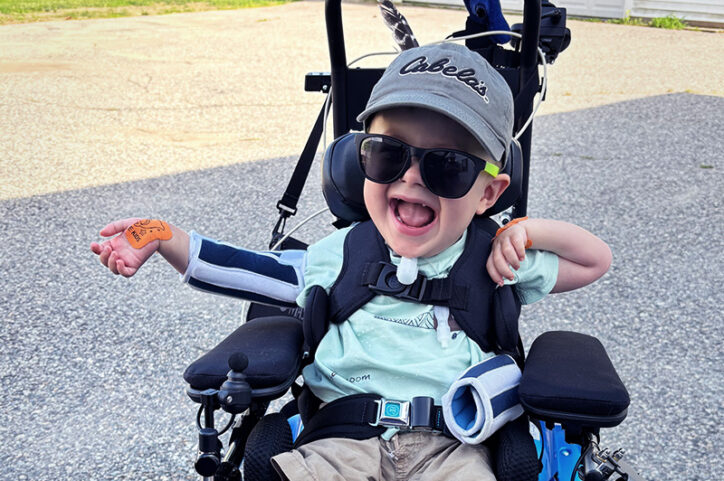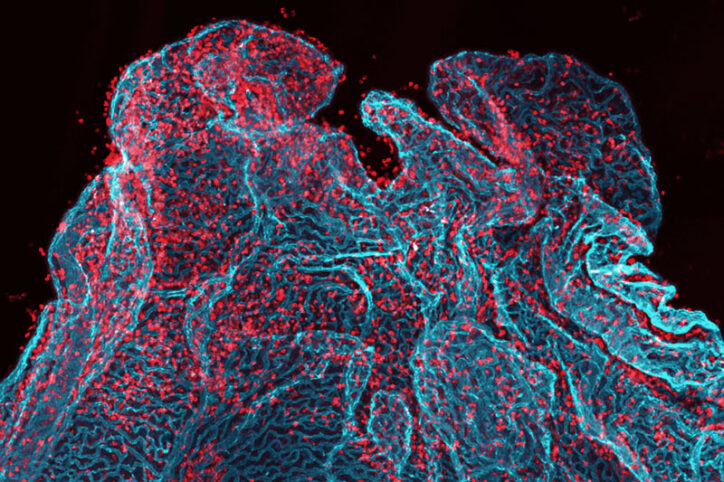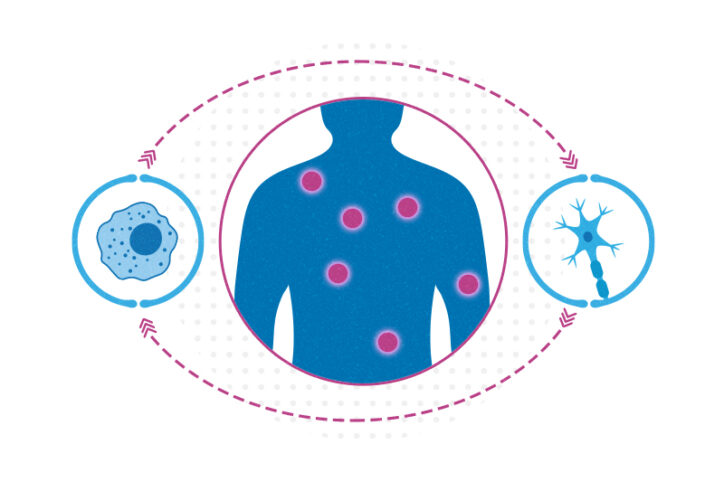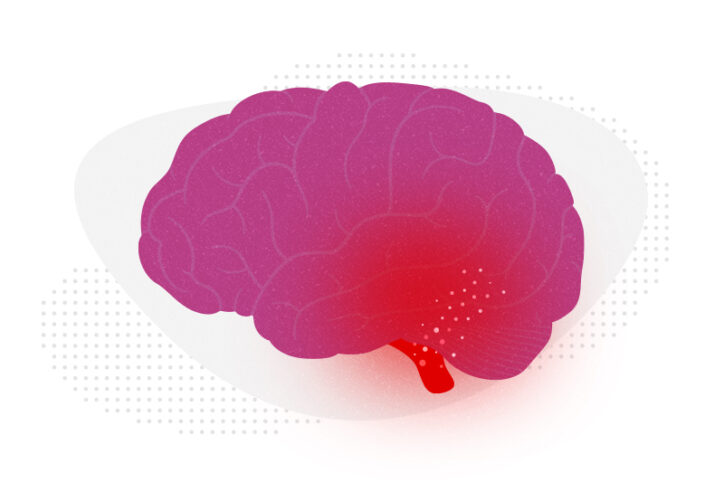Archive for neuroinflammation
“Princess June” reigns supreme over Rasmussen syndrome
What do you call a “girly” 5-year-old who adores dolls and frilly nightgowns? If you’re one of June Pelletier’s nurses at Boston Children’s Hospital, the answer is “Princess June,” of course. While Her Highness would much prefer to reign over her parents and three siblings at home in Connecticut, she’s no stranger to the hospital. ... Read More about “Princess June” reigns supreme over Rasmussen syndrome
Tagged: epilepsy, neuroimmunology, neuroinflammation, seizures
Navigating school with a neuroimmune condition
Fifteen-year-old Sarah had been challenging her dad to card games all week — and on Saturday, she finally beat him. It might seem like just good-natured competition to most people. But for Sarah, it was a much greater accomplishment: The teenager was coping with the lasting cognitive effects of autoimmune encephalitis and had struggled with ... Read More about Navigating school with a neuroimmune condition
No limitations: How Flora found answers for MOG antibody disease
Flora Ringler’s fifth birthday didn’t turn out as she had hoped. She and her family were vacationing in New Hampshire last year when she started feeling tired. But she wasn’t just worn out from celebrating: She also developed a bad headache and started throwing up. Concerned, her mom, Maureen, contacted a pediatrician, who thought she ... Read More about No limitations: How Flora found answers for MOG antibody disease
A better treatment for endometriosis could lie in migraine medications
Endometriosis is a common, mysterious, often painful condition in which tissue similar to the uterine lining grows outside the uterus, forming lesions in locations such as the fallopian tubes, ovaries, and pelvis. These lesions can cause severe pain during periods, heavy menstrual bleeding, pelvic or abdominal pain, and sometimes painful bowel movements and urination. Existing ... Read More about A better treatment for endometriosis could lie in migraine medications
‘They never stopped trying to figure out what was happening’: RyennAnne’s encephalitis journey
When 5-year-old RyennAnne Hurst developed a bad sore throat last summer, her doctor thought she might have strep and prescribed her antibiotics. But two weeks later, she wasn’t feeling any better. In fact, she was lethargic and her head hurt. “She told us it felt like something was smashing into the right side of her ... Read More about ‘They never stopped trying to figure out what was happening’: RyennAnne’s encephalitis journey
‘A lot better now’: Andrew’s recovery from Rocky Mountain spotted fever and a stroke
When Andrew was bitten by a tick in 2021, he and his parents could hardly have imagined that just a month later, he would be coping with a series of health problems that would culminate in a stroke. Andrew, then 7, didn’t even realize he’d been bitten until he began to feel sick with a ... Read More about ‘A lot better now’: Andrew’s recovery from Rocky Mountain spotted fever and a stroke
Tagged: neuroimmunology, neuroinflammation, stroke
After a severe case of myelitis, ‘rockstar’ Maxwell is on the move
When Maxwell Lazarz’s mother, Jennifer, tells him he’s a rockstar, he just laughs and asks her what that means. But as this joyful almost-3-year-old zips around in his motorized wheelchair, cracking jokes and blowing bubbles, it’s clear that his mom is right. In fact, Maxwell has been defying expectations ever since he was diagnosed with ... Read More about After a severe case of myelitis, ‘rockstar’ Maxwell is on the move
Tagged: neuroimmunology, neuroinflammation
Humble cells in a little-known organ manage brain inflammation
Deep in the brain, sheets of tissue known as the choroid plexus produce cerebrospinal fluid (CSF) and act as a protective barrier between the brain and CSF. But the lab of Maria Lehtinen, PhD, at Boston Children’s Hospital has shown that the little-known choroid plexus does much more. For example, it secretes factors that promote ... Read More about Humble cells in a little-known organ manage brain inflammation
Tagged: immunology, neuroinflammation, neurology, neuroscience
A deeper understanding of inflammatory pain could reveal new solutions
Non-steroidal anti-inflammatory drugs (NSAIDs) such as ibuprofen are the main go-to for inflammatory pain caused by wounds, infection, sunburn, arthritis, and other triggers. NSAIDs work pretty well, but chronic use can cause side effects, and they aren’t equally effective for all sources of pain. Could we identify a more effective, safer analgesic that doesn’t involve ... Read More about A deeper understanding of inflammatory pain could reveal new solutions
Could SIDS be caused by unrecognized brain infections?
Some infants who pass away from sudden infant death syndrome (SIDS) are known to have had acute minor infections. Could these have played a role in their death? Using next-generation molecular tools, a new study provides evidence that undiagnosed inflammation and occult infection can contribute to SIDS and the brainstem pathology seen in some infants. ... Read More about Could SIDS be caused by unrecognized brain infections?











